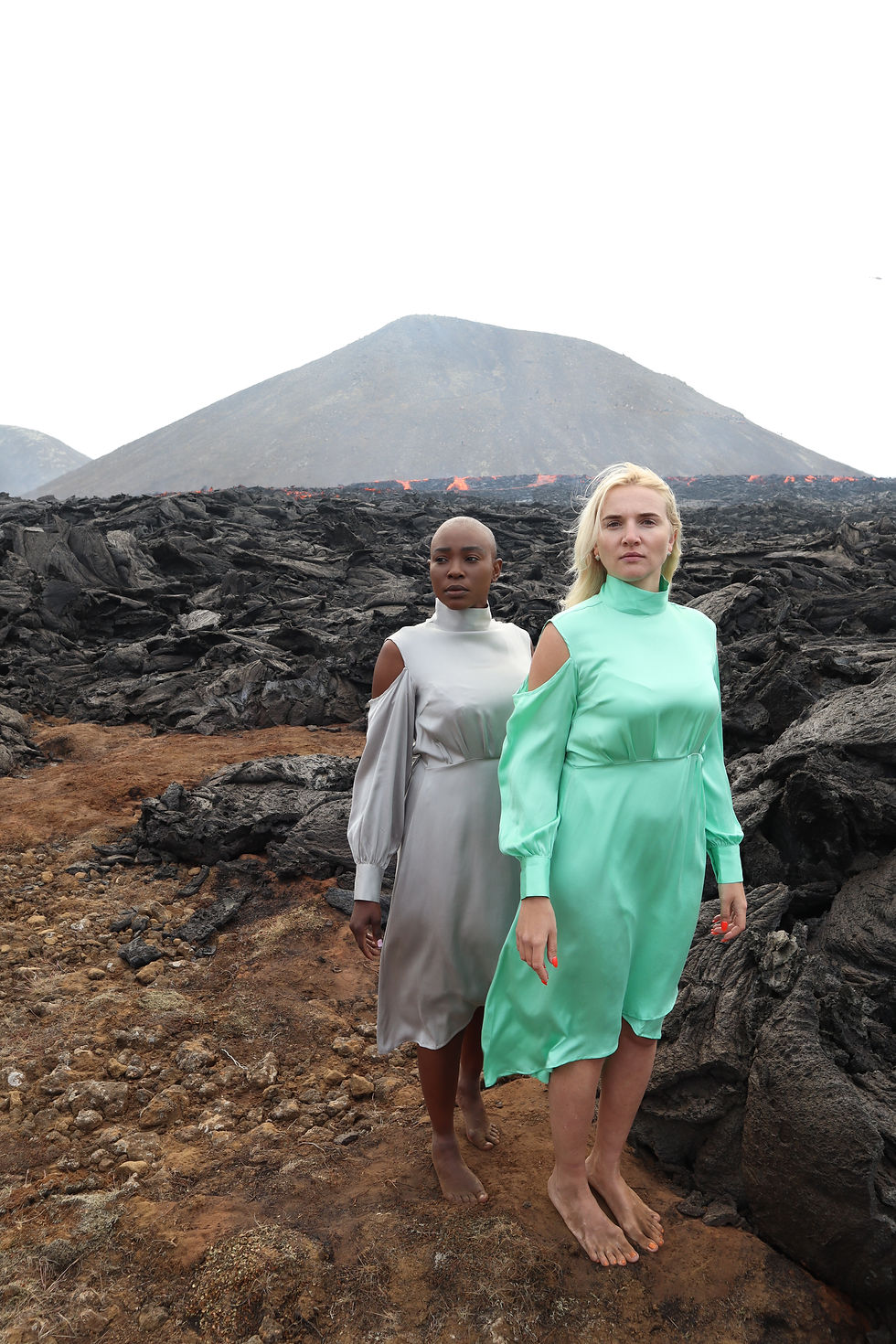Gracelandic Feature on Icelandic Times
- Grace Achieng
- Nov 2, 2024
- 3 min read

How is our business sustainable
As a “slow fashion” brand, Gracelandic drastically contrasts with large-scale “fast fashion” producers whose main objective is mass, high-speed production. The slow fashion movement promotes greater sustainability by producing higher-quality, eco-friendly clothing that will last longer. “The styles are timeless, versatile, and easy to style.” – Sustainability is about owning less by buying right. As such, Gracelandic employs a more holistic, socially conscious production model that prioritizes a triple bottom line: people, profit, and planet.
As a company we only use natural fabrics that receive no or very low levels of chemicals to grow, use less water and leave less waste during production. We also use natural dyes from vegetables and non chemical dyes on our products.
We have established a partnership with an ethical producer to supply all of Gracelandic’s fabric. By intentionally manufacturing ethically-produced garments, her company limits overstock and recycles all of its fabric scraps to be remade into accessories for their No-waste policy.

Sustainable Fashion Blogs / Devastating effects of the fashion industry in developing countries.
People do not realize how fast fashion has a devastating impact on climate change and water waste – something she is passionate about because she saw it firsthand as a child. She explains how the fast-fashion industry disproportionately affects developing countries like Kenya, where she grew up.
“The products and materials we dispose of in the West are sent to Africa,” she explains. “This kills independent businesses, and ninety percent of these clothes end up in African landfills.” We are so far removed from the production and manufacturing of things we buy that we’ve all kind of forgotten that someone somewhere had to make them. It’s also confronting to know that someone was paid a criminally low wage in order to do so.
93% of brands surveyed through Clean Clothes Campaign’s Fashion Checker are not paying their garment workers living wages.
According to Fashion Revolution, only an estimated 2% of fashion workers around the world are paid liveable wages. Women make up 80% of workers in the garment industry, as well as the majority consumers of the fashion industry. Despite this fact, the fashion Industry serves as grounds upon which gender discrimination has festered since its inception. Together we can channel the power of our vocalized objections to make a positive difference for the people who make our clothes and goods.

My hope is to bring attention to the less glamorous side of fashion and how we can all channel our combined voices to make positive changes to our environment, the people who make our clothes and protect developing countries from exploitation. It is more important than ever to know where our hard-earned money is going, and to support a more conscious & ethical way of consuming.
I encourage buyers to do research on Fast Fashion and watch The true cost documentary on YouTube.
Grace says that Gracelandic is a tangible representative of her personal journey since arriving in the Icelandic society, a journey of immense learning, growth, self discovery, realizing one’s full potential, coupled with a deep commitment to giving back, combining her love for fashion and making a difference in the fashion industry by investing in sustainable fashion blogs that shed a light on the the less glamorous side of fashion and its effects thereof. Her passions extend to ensuring children grow up in a nurturing, safe environment and empowering women. These passions catalyzed her pursuit of the Gracelandic dream, connecting the dots between looking good, feeling good, and making a positive impact on the world.
















Comments